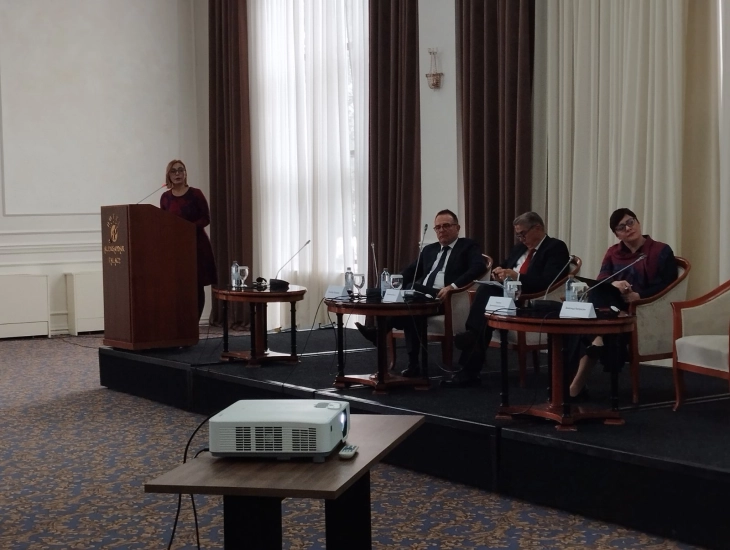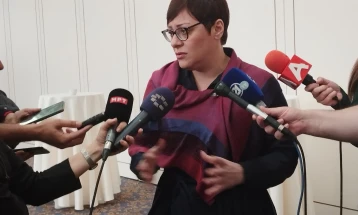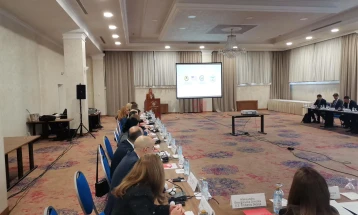Can’t expect economic growth higher than 2.5% without structural reforms: debate
- The average annual growth of public debt between 2008 and 2024 is 7 percent, and it already stands at over 60 percent of GDP. The budget deficit often crosses the established limit of 3 percent, especially with the budget revision, which shows weaknesses in planning. Good planning requires clear data about the expenses and outflows of all institutions. Without structural reforms we can’t expect the economic growth to be higher than 2.5 percent, concluded speakers at an event entitled “Fiscal Policy at a Crossroad: Path to Stability and Sustainable Public Finance” organized by the Fiscal Council of North Macedonia and Finance Think.

Skopje, 22 November 2024 (MIA) - The average annual growth of public debt between 2008 and 2024 is 7 percent, and it already stands at over 60 percent of GDP. The budget deficit often crosses the established limit of 3 percent, especially with the budget revision, which shows weaknesses in planning. Good planning requires clear data about the expenses and outflows of all institutions. Without structural reforms we can’t expect the economic growth to be higher than 2.5 percent, concluded speakers at an event entitled “Fiscal Policy at a Crossroad: Path to Stability and Sustainable Public Finance” organized by the Fiscal Council of North Macedonia and Finance Think.
Minister of Finance Gordana Dimitrievska-Kochoska raised the issue of accurate recording of all payments and expenses to enable proper planning. She also highlighted the fact that the limit of 3 percent for the budget deficit is often being crossed.
“We are a developing country. It’s not terrible for us to cross the limit of 3 percent. The issue isn’t whether we’ve spent more on something, but what we’ve spent more on. I personally think the spending on Skopje 2014 was unnecessary,” Dimitrieska-Kochoska said.
The Minister said a serious issue exists in the institutions when it comes to understanding finance, which is why, she said, they launched the Academy on Financial Policy while they were creating the budget for 2025.
“We believe that additional training is needed for all institutions when it comes to finance. Imagine, we’ve been functioning like this for 30 years, and this is the biggest problem for me,” Dimitrieska-Kochoska said.

She also announced that the Ministry of Finance would initiate amendments to the Law on Budgets, noting that ministers will no longer be able to decide by themselves what to invest in, and that this requires a more systemic approach.
“We had a period of signing collective agreements, which are now an issue for the budget. We want to be an economy like the U.S., while acting in a way that there is a constant drop in productivity. Our biggest challenge in 2025 will be to solve this issue. It should be fair, and wages should be the same for everyone, in all institutions,” Dimitrieska-Kochoska said.
The head of the Fiscal Council of North Macedonia, Gligor Bishev, said there is a broad conviction that maintaining a fixed tax and an expansive fiscal policy will bring economic growth.
The control of fiscal discipline, according to Bishev, requires consistency and shouldn’t be changed often, instead, he said, projections should be carried out every 3-5 years.
At the beginning of the event, the CEO of Finance Think, Blagica Petreski, presented a study analyzing fiscal discipline between 2008-2024.
“Fiscal policy in the Republic of North Macedonia is expansive in almost all analyzed periods. Pensions, wages and transfers to local self-government units represent a significant portion of outflows. Expenses are mainly social, and to a lesser extent developmental. This makes the structure of the budget deficit quite limited,” Petreski said.
Photo: MIA











